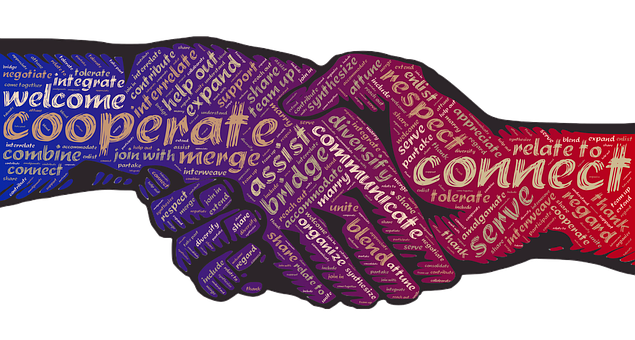Eight Things You Can Do To Further develop Your Relational abilities
;
Your manual for laying out better correspondence propensities for progress in the working environment.A furious money manager talks with a partner across a table of papers.A pioneer's capacity to convey plainly and really with representatives, inside groups, and across the association is one of the groundworks of a fruitful business.
Furthermore, in the present complex and rapidly developing business climate, with many different specialized instruments, completely or to some extent remote groups, and, surprisingly, multicultural groups crossing numerous time regions, successful correspondence has never been more significant — or more challenging.Thus, the capacity to convey may be a chief's most basic expertise.
Fortunately these abilities can be acquired and, surprisingly, dominated.
These eight hints can assist you with amplifying your relational abilities for the progress of your association and your vocation.
3. Be aware of nonverbal correspondence
5. Practice undivided attention
6. Fabricate your capacity to understand people at their core
7. Foster a working environment correspondence procedure
8. Make a positive hierarchical culture
1. Be clear and compact
Correspondence is principally about word decision. Furthermore, with regards to word decision, toning it down would be best.The way to strong and enticing correspondence — whether composed or spoken — is lucidity and, whenever the situation allows, quickness.Prior to participating in any type of correspondence, characterize your objectives and your crowd.Framing cautiously and expressly what you need to convey and for what reason will assist with guaranteeing that you incorporate all important data. It will likewise assist you with disposing of insignificant subtleties.
Keep away from superfluous words and excessively elegant language, which can divert from your message.And keeping in mind that reiteration might be essential at times, make certain to utilize it cautiously and sparingly. Rehashing your message can guarantee that your crowd gets it, however a lot of redundancy can make them block you out completely.
2. Plan somewhat early
Understand what you will say and how you will say before you start any kind of communication.However, being arranged means something beyond rehearsing a show.
Arrangement likewise includes pondering the whole of the correspondence, beginning to end. Research the data you might have to help your message. Consider how you will answer questions and reactions. Attempt to expect the unforeseen.
Before an exhibition survey, for example, set up a rundown of substantial instances of your representative's way of behaving to help your assessment.
Prior to taking part in a compensation or advancement exchange, know precisely very thing you need. Be prepared to talk about reaches and likely splits the difference; understand what you will acknowledge and what you're not. Furthermore, have close by unambiguous subtleties to help your case, like significant compensations for your situation and your area (however be certain that your exploration depends on freely accessible data, not organization tattle or episodic proof).
Prior to going into any discussion, conceptualize expected questions, demands for extra data or explanation, and conflicts so you are prepared to address them smoothly and obviously.
3. Be aware of nonverbal correspondence
Our looks, signals, and non-verbal communication can, and frequently do, express more than our words.
Nonverbal signals can have somewhere in the range of 65 and 93 percent more effect than the expressed word. Also, we are bound to trust the nonverbal signs over verbally expressed words on the off chance that the two are in conflict. Pioneers should be particularly skilled at perusing nonverbal signs.
Workers who might be reluctant to voice conflicts or worries, for example, may show their uneasiness through crossed arms or a reluctance to visually connect. Assuming you know about others' non-verbal communication, you might have the option to suitably change your correspondence strategies.Simultaneously, pioneers should likewise have the option to control their own nonverbal correspondences.
Your nonverbal signals must, consistently, support your message. Best case scenario, clashing verbal and nonverbal correspondence can create turmoil. Best case scenario, it can sabotage your message and your group's trust in you, your association, and, surprisingly, in themselves.
4. Watch your tone
How you say something can be similarly essentially as significant as what you say. Similarly as with other nonverbal signals, your tone can add power and accentuation to your message, or it can sabotage it completely.
Tone can be a particularly significant calculate work environment conflicts and struggle. A very much picked word with an encouraging implication makes kindness and trust. An inadequately picked word with indistinct or unfortunate underlying meanings can rapidly prompt misconception.
While talking, tone incorporates volume, projection, and inflection as well as word decision. Continuously, it very well may be trying to control tone to guarantee that it matches your expectation. In any case, being aware of your tone will empower you to modify it suitably in the event that a correspondence is by all accounts heading down some unacceptable path.
Tone can be simpler to control while composing. Make certain to peruse your correspondence once, even two times, while considering tone well as message. You might try and need to recite it without holding back or request that a believed partner read it over, on the off chance that doing so doesn't break privacy.
Furthermore, while taking part in a warmed exchange over email or other composed medium, don't be too rushed in your answers.Please, work out your reaction however at that point trust that daily or two will send it. By and large, re-perusing your message after your feelings have cooled permits you to direct your tone in a manner that is less inclined to heighten the contention.
Peruse our Correspondence programs.
5. Practice undivided attention
Correspondence almost consistently includes at least two people.
In this way, listening is similarly pretty much as significant as talking with regards to conveying effectively. However, listening can be more difficult than we understand.
In her blog entry Dominating the Fundamentals of Correspondence, correspondence master Marjorie North notes that we just catch wind of half of what the other individual says during some random discussion.
The objective of undivided attention is to guarantee that you hear the words the individual is saying, yet the whole message. A few hints for undivided attention include:
Truly focusing on the speaker
Getting your brain free from interruptions, decisions, and counter-contentions.
Keeping away from the compulsion to hinder with your own contemplations.
Showing open, positive non-verbal communication to keep your psyche centered and to show the speaker that you are truly tuning in
Reword or summarize what you've heard while making your answer
Pose unconditional inquiries intended to inspire extra data
6. Fabricate your capacity to understand people at their core
Correspondence is based upon a groundwork of the capacity to understand individuals on a profound level. Basically, you can't discuss actually with others until you can evaluate and grasp your own sentiments."Assuming that you're mindful of your own feelings and the ways of behaving they trigger, you can start to deal with these feelings and ways of behaving," says Margaret Andrews in her post, How to Work on Your Capacity to appreciate anyone on a profound level.
Pioneers with an elevated degree of the capacity to understand people on a profound level will normally find it simpler to take part in undivided attention, keep up with proper tone, and utilize positive non-verbal communication, for instance.Understanding and dealing with your own feelings is just essential for the ability to appreciate people on a deeper level. The other part — similarly significant for compelling correspondence — is sympathy for other people.Identifying with a representative can, for instance, make a troublesome discussion simpler.
You might in any case need to convey terrible news, however (effectively) paying attention to their point of view and demonstrating the way that you comprehend their sentiments can go far toward smoothing put in a horrible mood or staying away from false impressions.
7. Foster a working environment correspondence procedure
The present work environment is a steady progression of data across a wide assortment of configurations. Each and every correspondence should be grasped with regards to that bigger progression of data.Indeed, even the best communicator might find it hard to make themselves clear without a working environment correspondence technique.A correspondence technique is the structure inside which your business passes on and gets data. It can — and ought to — frame how and what you convey to clients and clients, partners, and administrators and workers.
Beginning most extensively, your system ought to consolidate who gets what message and when. This guarantees that everybody gets the right data with perfect timing.It very well may be pretty much as point by point as how you impart, including characterizing the kind of instruments you use for which data. For instance, you might characterize when it's suitable to utilize a gathering visit for the whole group or association or while a gathering ought to have been summed up in an email all things being equal.
Making fundamental rules like this can smooth out the progression of data. It will assist with guaranteeing that everybody gets the subtleties they need and that significant information isn't overpowered by unessential details.
8. Make a positive hierarchical culture
The corporate culture where you are imparting likewise assumes a crucial part in compelling correspondence.In a positive workplace — one established on straightforwardness, trust, compassion, and open exchange — correspondence overall will be simpler and more powerful.
Workers will be more responsive to hearing their director's message assuming they believe that administrator. Furthermore, directors will find it simpler to make purchase in and, surprisingly, offer useful analysis assuming that they urge their representatives to shout out, give ideas, and, surprisingly, offer valuable reactions of their own.
"The most hazardous association is a quiet one," says Lorne Rubis in a blog entry, Six Ways to construct a Superior Work environment Culture. Correspondence, in the two headings, must be powerful in a culture that is based on trust and a groundwork of mental security.Legitimate administrators who will not share data, aren't available to ideas, and decline to concede botches and acknowledge analysis are probably going to find their ideas and reactions met with preventiveness or even disregarded through and through.
Without that underpinning of trust a










You must be logged in to post a comment.